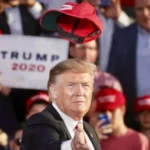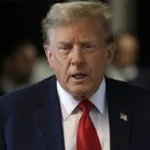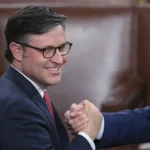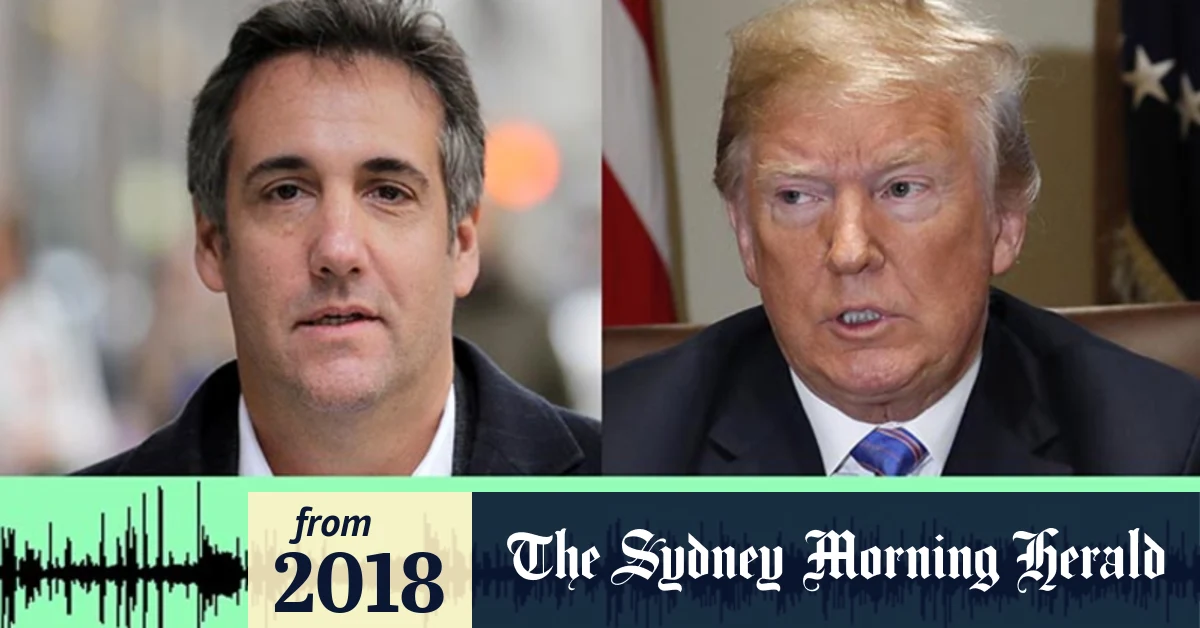Jurors have heard a secret recording of Donald Trump allegedly talking about making hush-money payments to Playboy model Karen McDougal.
On Monday, Trump’s former attorney Michael Cohen told the jury that he made the recording without the ex-president’s knowledge. Prosecutors say the recording shows that Trump was fully aware he would have to pay $150,000 to silence McDougal before the 2016 presidential election.
Trump, the presumptive Republican presidential nominee for 2024, is the first former president in U.S. history to stand trial in a criminal case. He has pleaded not guilty to 34 counts of falsifying business records. He has continually said that this case and other criminal and civil challenges involving him are politically motivated.
The prosecution seeks to prove that, before the 2016 presidential election, Trump paid or discussed paying two women—adult film star Stormy Daniels and McDougal—not to disclose his alleged affairs with them. The former president denies affairs with both women. Newsweek sought email comment from Trump’s attorney on Tuesday.
Prosecutors say that Cohen made the payment to Daniels on Trump’s behalf and was later reimbursed. They also claim that it is an illegal campaign contribution because the payment was intended to silence Daniels and thereby influence the 2016 presidential election.
“So what do we got to pay for this? One-fifty?” Trump asked Cohen in the recording. The lawyer can allegedly be heard telling the Republican that they need to set up a front company to reimburse a publisher for paying McDougal for her silence.
Cohen was later jailed for illegal campaign contributions, tax fraud and other charges. He is now an implacable opponent of Trump, and they have attacked each other’s characters on social-media posts since the trial began.
Cohen said he made the recording to prove to the National Enquirer publisher David Pecker that the latter would be reimbursed for the $150,000 he paid McDougal to buy her silence about her alleged affair with Trump.
The court already heard portions of the recording during testimony by technical expert Douglas Daus.
Cohen recorded Trump on his iPhone while sitting across from him in the Republican’s office on September 6, 2016, just two months before Trump won the presidential election against Hillary Clinton.
The jury heard a portion of the recording in which Cohen tells Trump that they will have to “open up a company for the transfer of all of that info regarding our friend David.”
Prosecutors say that is a reference to David Pecker and the need to hide the reimbursement to him for paying off Karen McDougal. This was done when Cohen set up a front company, prosecutors allege.
In the recording, Trump asked Cohen: “So what do we got to pay for this? One-fifty?”
Cohen told the court that was a reference to the $150,000 that Trump knew Pecker had paid McDougal to buy up her story.
“He already knew based upon conversation with David, which is why he mentioned the number 150,” Cohen told the jury.
Former federal prosecutor Neama Rahmani told Newsweek that the recording was an important part of evidence as prosecutors did not want to rely on Cohen’s testimony alone. “Cohen is unlikable, a convicted felon, and an admitted liar, so the prosecution is trying to corroborate his testimony with independent evidence like the secret tape,” he said.
Rahmani, now the president of the West Coast Trial Lawyers law firm in California, added that the prosecution needs solid evidence to back up Cohen’s testimony before he undergoes cross-examination.
When news of the tape’s existence emerged in 2018, Trump and his then-attorney Rudy Giuliani strongly denied that the tape included any incriminating evidence. The former president also denounced Cohen for secretly recording his own client.










